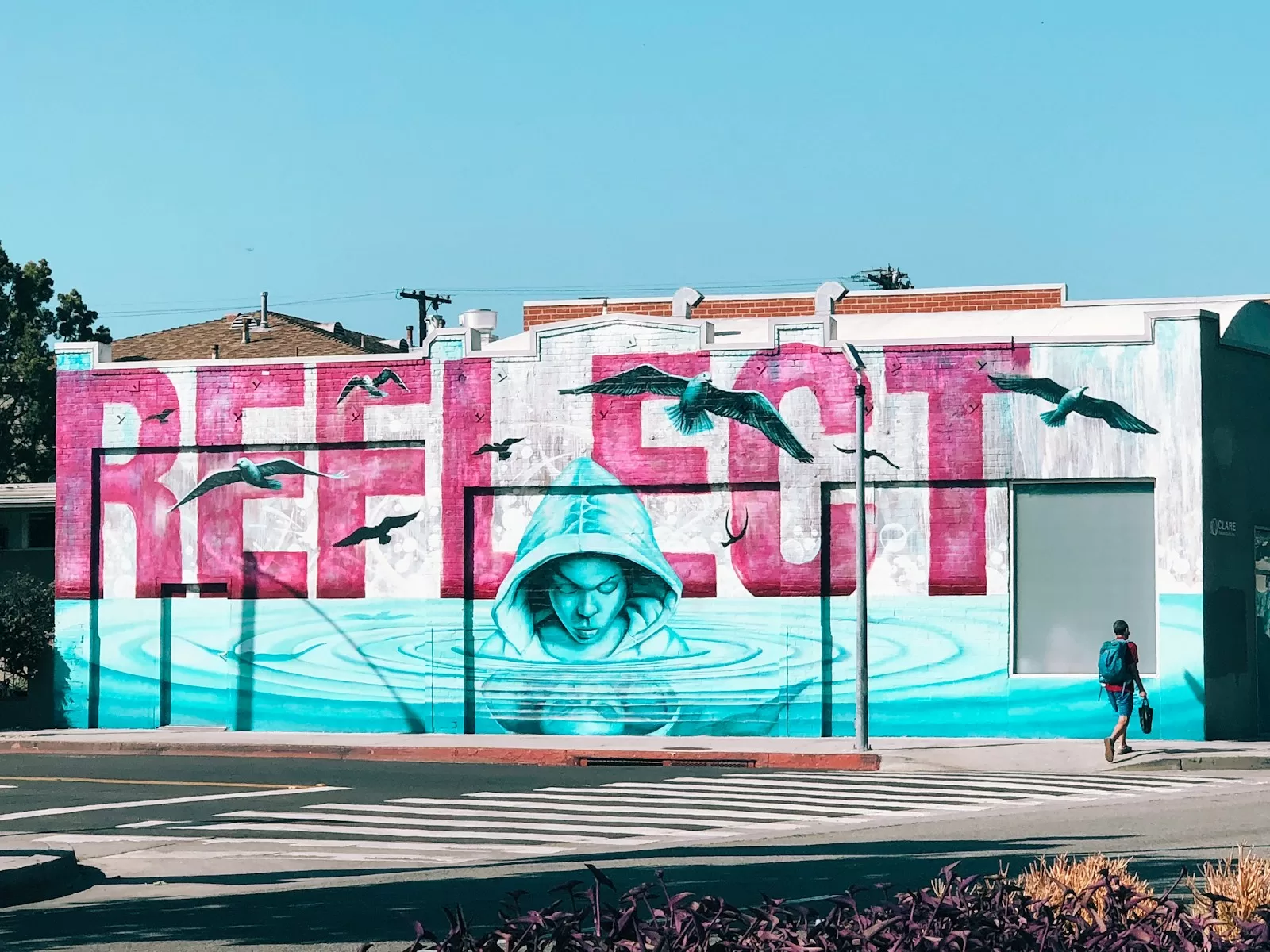Nobel Laureate José Saramago is a prominent figure in contemporary literature. His thought-provoking and unconventional writing left an indelible mark on the world. Born on November 16, 1922, in the small village of Azinhaga, Portugal. Saramago’s humble beginnings were the foundation for his extraordinary literary journey. In this article, we will dive into the life and works of José Saramago. We will explore the unique narrative style that made him a literary icon and the profound impact of his stories on readers worldwide.
Welcome Back Vagabonds!
Welcome to “Atypical Vagabond,” a portal to a realm where boundaries blur and conventional paths diverge. Here, we delve into the world of unconventional exploration and celebrate the art of wandering without constraints. Join us as we uncover hidden gems, unravel the tales of unconventional nomads, and delve into the transformative experiences that await those who dare to embrace the call of wanderlust.
A strong desire for freedom often arises in a busy world of daily routines and societal pressures. We become fascinated by the exciting appeal of unfamiliar places, the mysterious call of undiscovered destinations, and the life-changing influence of travel. In these instances, we awaken the spirit of the unconventional traveler — the wanderer who desires to explore the world and embark on a journey of self-discovery and personal freedom.
Early Life and Influences
Saramago’s upbringing in a rural Portuguese setting played a pivotal role in shaping his perspective and writing. He grew up during the tumultuous Spanish Civil War and World War II years. José Saramago witnessed the struggles and suffering of the era. These experiences instilled in him a deep empathy for the human condition. Eventually, he would reside in Obidos, Portugal. Therefore, he had a critical view of societal norms and structures. His humble beginnings allowed him to relate to the common man, and this connection would later permeate his literature.
Saramago’s Works: Breaking Literary Conventions

José Saramago was known for his distinct and challenging narrative style. His refusal to use traditional punctuation marks, such as periods and quotation marks, set him apart from other authors. This unique style encouraged readers to engage more actively with his narratives, immersing themselves in his stream-of-consciousness storytelling. Some of his most celebrated works, like “Blindness” and “The Gospel According to Jesus Christ,” explore complex themes of society, power, and the human spirit. Saramago’s literary prowess earned him numerous awards, including the Nobel Prize in Literature 1998.
In the following sections, we will go deeper into some of Saramago’s most iconic works We will explore the messages and questions he posed through his writing. José Saramago’s impact on literature is undeniable. Therefore, his stories continue to resonate with readers, challenging them to view the world differently.
Blindness: A Vision of Society
One of Saramago’s most acclaimed works, “Blindness,” delves into the fragility of human civilization. The story begins with an inexplicable epidemic of sudden blindness that spreads like wildfire, plunging society into chaos. In this gripping narrative, the author masterfully dissects the human condition under extreme duress. Saramago asks profound questions about humanity’s essence, societal norms’ breakdown, and the struggle for survival. “Blindness” is not just a novel but a mirror reflecting the darkest and brightest aspects of human nature.
The Gospel According to José Saramago
In “The Gospel According to Jesus Christ,” Saramago boldly reimagines the life of Jesus Christ, offering a unique and controversial perspective. The novel explores the life of Jesus, not from a theological standpoint but from a profoundly human one. Saramago’s portrayal of Jesus as a man grappling with his divine destiny and personal desires challenges established religious narratives. This unconventional take sparked admiration and controversy, demonstrating Saramago’s courage in tackling profound and sensitive subjects.
Legacy and Lasting Impact
José Saramago’s literary contributions extend far beyond the confines of traditional storytelling. His thought-provoking narratives, innovative writing style, and unwavering commitment to exploring the human condition. Saramago’s works have left an indelible mark on literature. His works continue to captivate readers and challenge conventional thinking. Understanding the intricacies of Saramago’s literary landscape will help us understand the man who dared to question, challenge, and inspire.
The following sections will explore more of José Saramago’s literary works. Each offers a unique perspective on the complexities of human existence. His stories invite one to reflect, question and appreciate the world’s beauty. Reading his work is seen through the eyes of a Nobel Laureate who saw the extraordinary in the ordinary. José Saramago’s legacy lives on in the pages of his books, where his profound insights resonate with readers worldwide.
All the Names: An Ode to Identity
In “All the Names,” Saramago embarks on a philosophical journey through the labyrinth of identity and bureaucracy. The story revolves around Senhor José, an unassuming clerk in the Central Registry of Births, Marriages, and Deaths. His obsession with collecting information about people, despite the mundane nature of his job, leads him to an extraordinary discovery. Saramago masterfully weaves a tale into the essence of human existence, the search for meaning, and the intricate threads of identity that connect us all. With his signature wit and insightful prose, Saramago invites readers to ponder the significance of a name and the stories it holds.
Seeing: A Satirical Reflection
In “Seeing,” Saramago returns to the unnamed city from “Blindness.” In this sequel, he explores the consequences of an election in which most citizens cast blank votes as a protest. A political and social commentary ensues that satirizes the intricacies of power, surveillance, and the fragility of democracy. Saramago’s ability to dissect the human condition within the framework of a thought-provoking narrative is on full display. “Seeing” challenges us to question the structures that govern our lives and our role in shaping our collective destiny.
A Literary Treasure Beyond Borders
José Saramago’s contributions to literature have earned him a revered place in the literary world. His writing transcends national boundaries, sparking discussions and contemplation among readers from diverse cultures. His ability to fuse imaginative storytelling with profound philosophical inquiry has left an indelible legacy. Saramago’s works are not just novels. They are windows into the human soul, reflections of society’s intricacies, and invitations to explore the depths of our existence.
Blindness: An Exploration of Humanity
José Saramago’s “Blindness” is a powerful exploration of the human condition in the face of an inexplicable epidemic of sudden blindness. As society unravels and the afflicted are quarantined, a small group of characters emerges as unlikely leaders. In this harrowing and allegorical tale, Saramago delves into the fragility of civilization. The loss of societal norms and the resilience of the human spirit in “Blindness” is a mirror. It reflects the darkest aspects of our nature and the flickering hope that endures even in the bleakest of times.
A Controversial Perspective
In “The Gospel According to Jesus Christ,” Saramago retells the life of Jesus Christ from a unique and controversial perspective. His portrayal of Jesus as a fallible and conflicted figure challenges traditional religious narratives. This novel ignited heated debates and even led to its exclusion from literary prizes in Portugal. Saramago’s ability to question deeply ingrained beliefs and provoke intellectual discourse is a testament to his literary courage. As readers, we are encouraged to reexamine the stories that have shaped cultures and religions. We are invited to embrace a more complex and human portrayal of faith.
The Stone Raft: An Allegory of Unity
“The Stone Raft” takes readers on a fantastical journey as the Iberian Peninsula drifts away from Europe. In this allegorical tale, Saramago explores the themes of unity and separation. As the characters grapple with the consequences of this geological anomaly, they confront the divisions that have shaped their lives. Saramago’s narrative serves as a poignant reminder of the interconnectedness of humanity and the arbitrary nature of borders. “The Stone Raft” challenges us to question the divisions that continue to define our world. Therefore, we should imagine a reality where unity triumphs over separation.
José Saramago’s literary legacy is a testament to the enduring power of words to ignite thought, conversation, and change. His books are more than stories; they catalyze introspection and societal critique. As we journey through the pages of his works, we are invited to see the world through a different lens that reveals the beauty and complexity of the human experience.
Atypical Last Thoughts

José Saramago stands as a literary giant whose works transcend the boundaries of time, place, and tradition. His Nobel Prize in Literature was a well-deserved recognition of his ability to challenge the status quo, question societal norms, and explore the depths of the human soul through his writing.
Saramago’s unique narrative style, characterized by long sentences and minimal punctuation, creates a distinctive reading experience that immerses readers in the intricacies of his stories. His novels are more than tales; they are profound reflections on the complexities of existence, faith, power, and the human condition.
Bid Farewell
As we bid farewell to this exploration of José Saramago’s literary world, we are reminded of the enduring impact of his words. His writings inspire us to question, reflect, and engage with the world around us. Saramago’s legacy lives on, encouraging us to embrace life’s beauty and ambiguity, challenge the narratives that constrain us, and see the extraordinary in the ordinary.
So, whether you’re revisiting his works or embarking on a journey through the pages of his novels for the first time, remember that the words of José Saramago are a testament to the boundless possibilities of literature. As we close this chapter, let’s continue to explore the vast landscapes of literature. Draw inspiration from the wisdom and insight of this remarkable Nobel Laureate. José Saramago’s legacy endures an invitation to explore, question, and discover the endless mysteries.
Subscribe
Are you an avid traveler seeking inspiration for your next adventure? Look no further than the Atypical Vagabonds newsletter. By subscribing to our newsletter, you gain access to a treasure trove of travel tips, destination guides, and captivating stories from around the globe. Our expertise in exploring off-the-beaten-path destinations. We offer a refreshing perspective on travel, encouraging you to embrace the unconventional and discover unique experiences. Join the community today and let our wanderlust-inducing content inspire you. Therefore, you can embark on extraordinary journeys. Subscribe to receive their latest updates directly in your inbox and never miss a travel adventure again.
Donations
Love what you’re seeing on Atypical Vagabond? Help us keep the adventures coming! Consider donating through PayPal’s secure payment system. Every contribution goes a long way in fueling our mission to bring you more thrilling content and unforgettable experiences. Join us in shaping the future of travel—donate today!




[…] to your theme provides context, historical background, and a more profound connection to the subject matter. It’s like having a personal guide narrate the story behind the places you […]